Rome Turns 2774 on April 21st, 2021 and We Are Ready to Celebrate!
When it comes to the origins of Rome, most people think of iconic things like the Colosseum, Circus Maximus, and famous Emperors like Augustus and Nero. Well, I am here to tell you that Rome is much, much older than any of those images in your head.
Rome was founded when Romulus killed his brother Remus and started his Kingdom of Rome way back in 753 BCE. I want to tell you all about this story of two brothers, the founding of Rome, and why we celebrate it on April 21st every year.
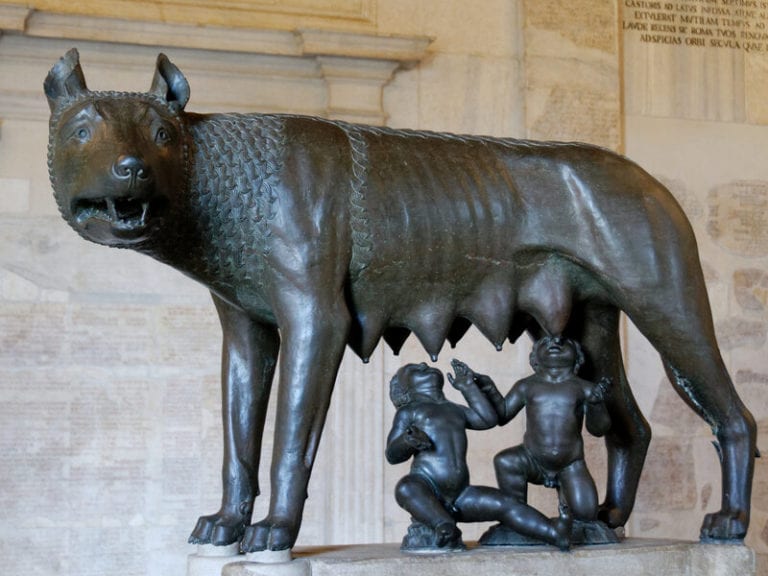
Rome Was Founded By Romulus
Back in the 8th century BCE King Numitor was the leader of Alba Longa, a kingdom in the Alban Hills near Rome. Numitor had a brother named Amulius and a daughter named Rhea Silva. Amulius defeated Numitor and exiled him, becoming King of Alba Longa. While in the service of the Vestal Virgins, Rhea Silva gave birth to two twin boys named Romulus and Remus. Now, this is a big problem for Rhea Silva. Vestal Virgins are just that, virgins, and not supposed to engage in carnal relations, let alone have babies. She claimed that the father of the twins was Mars, the Roman god of war. There are a few holes in this story, but for our purposes, we’ll go with it.
Romulus and Remus are now technically the heirs to the throne of Alba Longa. Amulius ordered his soldiers to kill them in order to protect his throne. The boys were put in a basket on the banks of the Tiber and left to be killed by the rising water. This did not happen, however, and they washed up on the banks of the river at the base of the Palatine Hill. The boys, starving and near death, were found by a she-wolf who suckled them back to health. Here we have some more holes in the story, especially regarding a wolf not eating the babies, but again, I digress.
Found in the Grip of the She-Wolf
One day, a farmer named Faustulus found the boys on the hillside of the Palatine and took them home. He and his wife raised the boys to adulthood as shepherds. Again, we come to a very unlikely part of the story. Ultimately, there was an altercation between Romulus and Remus and their uncle Amulius was killed. Numitor was reinstated as King of Alba Longa. The boys were offered their birthright as heirs to that throne. They abdicated and went back to where Faustulus found them in order to establish their kingdom.
The brothers argue over where to start their new civilization. Romulus began building on the Palatine Hill, while Remus chose the Aventine. After a bird-watching contest that solved nothing, Remus leaped over the trench (or in some versions, wall) around Romulus’ settlement, and Romulus killed him. At this point, Romulus became the king of the new settlement to be called Rome.
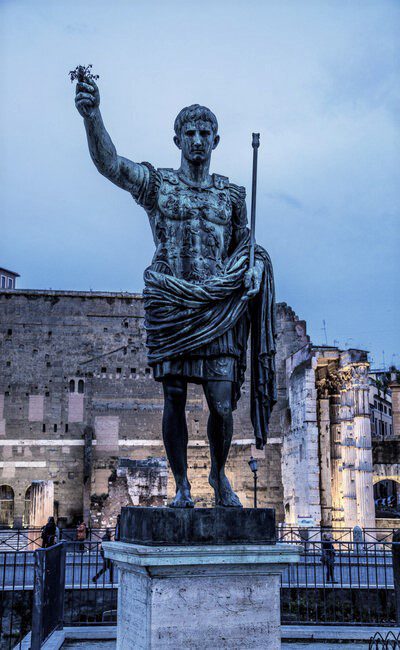
The Kingdom and The Empire
Rome would remain a kingdom for the next 250 years, ruled by only 7 kings. Now we know that math doesn’t quite add up, but this is the official theory we go by here in Rome. Around 509 BCE Rome became a voting republic and was governed by the senate as well as elected officials. This continues for the next 500 years or so, during which there are times of peace, expansion, and even civil war.
Then we get into the history of Rome that most people today are familiar with. The life and death of Julius Caesar pave the way for his great-nephew Octavian to become the first Emperor Augustus. From here we see the further expansion of the great Roman Empire. We remember names such as Caligula, Nero, Hadrian, Marcus Aurelius, Commodus, and Constantine. After the fall of this mighty empire, we see the rise of Christianity during the Middle Ages and then the light of the Renaissance. Throughout it all Rome goes through her ups and downs. The city remains to this day a beacon of light and a historical icon in the modern world. Definitely a city whose history and fame are worth celebrating each year.
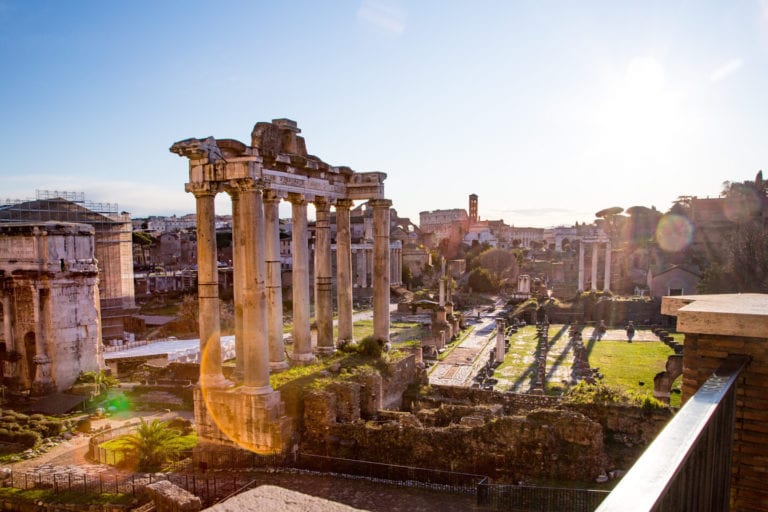
April 21st, The Official Founding of Rome
So, if Rome is 2774 years old, how do we possibly know the exact day it was founded? The short answer…we don’t. The longer answer is, that’s what the Romans decided around 1 BCE. I’m here to tell you why they chose this very specific date.
As you probably know, the Romans were pagans, they worshipped many gods. To be honest, they basically renamed the Greek gods, but again I digress, there were many Roman gods. One of these gods was Pales, the deity of shepherds. The Parilia, the festival to honor Pales, was celebrated each year on April 21st. During this festival the stalls and herds were cleaned and adorned. The Vestal Virgins distributed straw, ashes, and the blood of sacrificial animals. There were also simple foods on offer. There was even a bonfire that the Vestals would jump over three times at an outdoor feast. The festival was led by the Pontifex Maximus and was one of the most important festivals of the year.
The fact that Romulus and Remus were raised as shepherds likely is one of the reasons for choosing this as the founding day, but we don’t know for certain. What we do know is that a scholar named Marcus Terentius Varro, in 1 BCE, determined that April 21st was the exact day Rome was founded 752 years earlier. He must have been some scholar!
Today, archeologists can confirm that 753 BCE is pretty accurate for the founding of Rome. I suppose they don’t argue the exact day. It has been celebrated on this day for 2000 years. And since they got the year so close, why argue the semantics of the day at this point?
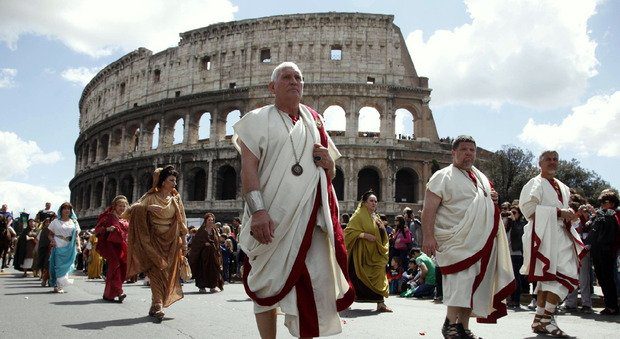
How Do We Celebrate the Founding of Rome Today?
With a giant birthday party, of course! Now, I will preface this section of the blog with the fact that due to covid-19 restrictions in Italy, the usual festivities for Rome’s birthday are online this year. On Sunday, April 18th, there will be various events streaming live from the National Etruscan Museum at Villa Giulia. You can find the link to the events at www.gruppostoricoromano.it..
If you are here on April 21st in a normal, non-covid year, you can look forward to the following celebrations. Most of the events take place at the Circus Maximus. There are gladiator fights, a trench-digging ritual (tracciato del solco), traditional Roman food, a grand parade, and even a Dea Roma (Goddess of Rome) beauty competition. The parade begins at Circus Maximus, to Piazza Venezia, down the Fori Imperiali, past the Colosseum on its way back to the Circus Maximus.
Another event not to miss is at the Pantheon. This temple turned church was designed by Emperor Hadrian’s architects to perform a fascinating light trick on Rome’s birthday. Every April 21st at noon, the sunlight shines through the oculus (hole in the ceiling) and lands perfectly aligned with the doorway of the structure. This is when the Emperor of Rome could enter to celebrate the founding of Rome and honor the gods.
After all of the celebrating with gladiators and goddesses, contemporary Romans in historical costumes, and tourists gathering to watch, the day is capped off by a fireworks show!
2021 Birthday Events
Unfortunately, for the second year in a row, covid-19 has caused the founding of Rome celebrations to be canceled. This year, with the official events being online, we want to bring you a fun event that is allowed. Roman Vacations will be giving a free walking tour at 6pm on April 21, 2021. This walking tour will be offered in person as well as live-streamed online. Fortunately, within the orange zone restrictions, outdoor walking tours are still allowed, and we follow all of the covid-19 rules in the decree from the Italian PM. You can check out the details of our official Facebook event. For those of you who are not in Rome, you can watch on our Facebook live!
If you are unable to attend the in-person birthday tour, but you want to learn more about Ancient Rome, you can join us on our Ancient Rome Walking Tour anytime!

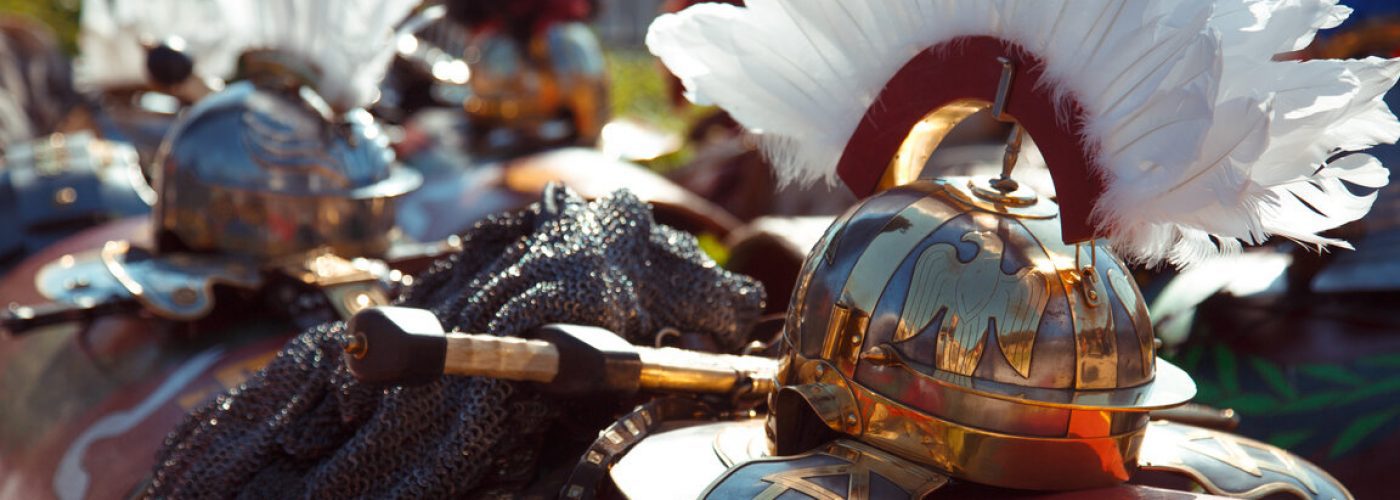
Recent Comments